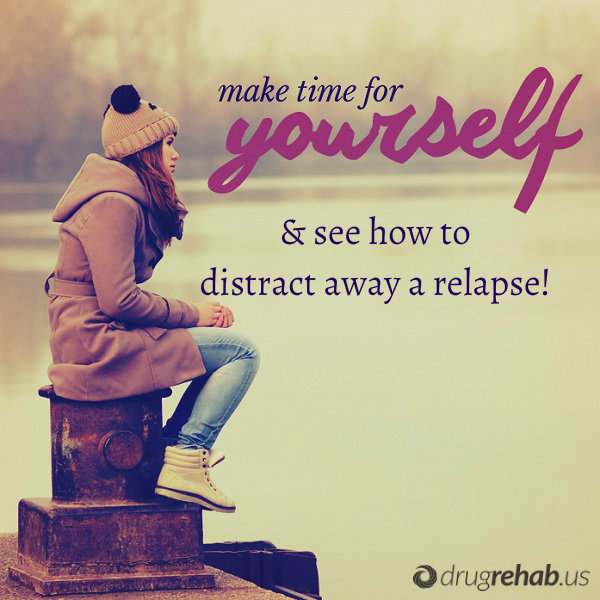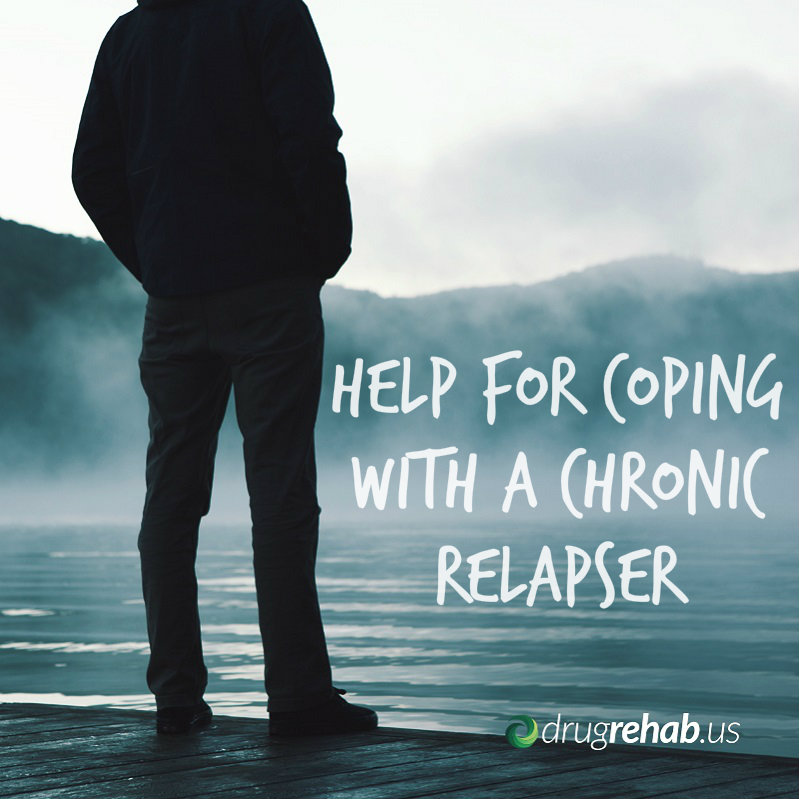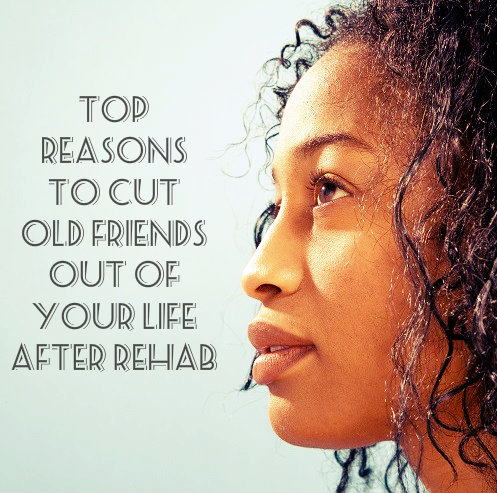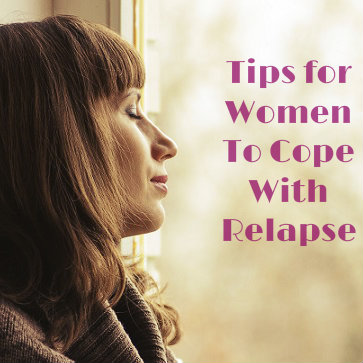02 Mar 2015
How To Use Distraction To Avoid Relapse
Relapse is an inevitable part of addiction recovery for many people, but the goal is to avoid it. If you, or your loved one in recovery, can avoid using again you can avoid resetting the clock on sobriety. Not using again when you feel intense cravings or when a trigger makes you reach for a glass or a pill is difficult. It’s beyond difficult. It sometimes feels impossible.
Willpower is required, but as an addict you need what seems like an inexhaustible well of it. You need far more than most people need in everyday life. Learn from the experts on willpower.
The good news is that you can exercise it like a muscle, and part of that involves distracting yourself.
Learning About Self-Control From The Marshmallow Test
 A famous study involving willpower and self-control has shown us just how important the ability to delay gratification is. The study used children to test willpower and then tracked them later in life. The kids were given a marshmallow and told they could eat it right away or wait 15 minutes and get a second marshmallow. Each child was then left alone with the marshmallow for the 15 minutes. Those that could resist the urge to eat the marshmallow and wait to get two were much more likely to be successful later in life. They did better in school and even earned more money later.
A famous study involving willpower and self-control has shown us just how important the ability to delay gratification is. The study used children to test willpower and then tracked them later in life. The kids were given a marshmallow and told they could eat it right away or wait 15 minutes and get a second marshmallow. Each child was then left alone with the marshmallow for the 15 minutes. Those that could resist the urge to eat the marshmallow and wait to get two were much more likely to be successful later in life. They did better in school and even earned more money later.
What addicts in recovery can learn from the marshmallow test is how to have self-control in the face of the intense urge to use again. Researchers observed kids using a variety of techniques to avoid giving in to instant gratification. What came up again and again, and what other researchers have found helps to strengthen willpower, is distraction. In the face of a craving, distract yourself.
Tips On How To Distract Away A Relapse
Of course, there is a huge difference between a child drawn to a marshmallow and a recovering addict facing a bottle of vodka, but you can still use the same technique of distraction. Distraction is used in a variety of settings to improve willpower, most notably among people trying to lose weight. Their techniques and rules can help you avoid relapsing. Remember that practice and repetition are important. The more you make these distractions into habits, the easier it will be to resist your cravings.
- Choose healthy distractions – For a distraction to be successful it has to be pleasurable, but you also don’t want to develop a bad habit. Don’t use junk food or cigarettes. Whatever it is you enjoy, use it when you feel a craving. It could be a walk in the park, a musical instrument, a cup of coffee, a good book or a movie with a friend. Whatever works for you should be your distraction.
- Use your imagination – If you find yourself in a situation where you can’t get to your distraction, imagine it. Research has found that imagining a pleasurable distraction can be almost as good as having the distraction in hand. Get creative and think of anything pleasurable besides your urge to use.
- Solve a problem – Researchers have also found that engagement is as important as pleasure if a distraction is to be successful. If you have a problem to solve at work, or even just a crossword puzzle, use it as an engaging distraction.
- Plan your distractions – Don’t wait for a craving to hit, when you will be desperate for a distraction. Plan right now. What will your distractions be when you most need them? Have a variety ready to go.
As you make a habit of distracting yourself from cravings, it will become easier and easier to avoid giving in to urges. Choose healthy distractions, use them often and make a habit of not relapsing!
Most people recovering from an addiction to an opioid drug or medication will experience a relapse fairly early in the treatment process. Two key factors in the onset of a relapse are the presence of continuing cravings or urges for opioid use and the onset of withdrawal symptoms after initial opioid detoxification.
In a study slated for publication in February 2015 in the journal Addictive Behaviors, a team of American researchers looked at the ways in which cravings and withdrawal symptoms impact the relapse risks for any given person recovering from prescription opioid addiction.
Opioid Cravings
All people dealing with opioid drug or medication addiction have longstanding chemical changes in their brain function that make them physically dependent on the continued intake of some form of opioid substance.
 Opioid cravings are essentially unconscious and conscious signals sent by the brain as a reminder of the established need to maintain at least a minimum level of opioid intake. Conscious cravings may manifest as clearly articulated thoughts supporting immediate opioid consumption or opioid consumption in the near future.
Opioid cravings are essentially unconscious and conscious signals sent by the brain as a reminder of the established need to maintain at least a minimum level of opioid intake. Conscious cravings may manifest as clearly articulated thoughts supporting immediate opioid consumption or opioid consumption in the near future.
Conversely, unconscious cravings may manifest as unarticulated urges for opioid intake. Conscious and unconscious cravings for the use of opioids or any other substance commonly stem from exposure to drug cues.
These cues are reminders of the actions commonly undertaken during episodes of substance use, the thoughts or feelings associated with substance use or the circumstances in which substance use typically occurs.
A strong drug cue can support a rapid escalation of drug cravings, and thereby steeply boost the short-term odds of drug use. The presence of opioid cravings is a diagnosable symptom of opioid use disorder (opioid abuse/addiction).
Opioid Withdrawal
Withdrawal is a second reinforcer used by the dependent/addicted brain to ensure the continued consumption of any given substance. It occurs when the levels of that substance fall below the levels required by the currently established conditions of addiction.
Opioid Withdrawal Symptoms
Specific symptoms of opioid withdrawal include:
- sleeplessness
- achy muscles
- an unusually anxious or agitated mental state
- excessive sweat production
- nausea
- vomiting
- pupil dilation
- diarrhea
- cramping in the stomach or abdomen
Unlike some forms of withdrawal (e.g., alcohol withdrawal), opioid withdrawal has no potential to trigger fatal changes in body function. However, affected individuals commonly feel uncomfortable enough to resume opioid intake. Withdrawal symptoms are usually most prominent during initial opioid detoxification. Along with opioid cravings and a range of other symptoms, doctors use the presence of withdrawal symptoms to help diagnose the presence of opioid use disorder.
Impact On Opioid Relapse Rates statistics
In the study scheduled for publication in Addictive Behaviors, researchers from the University of Texas Medical School at Houston, the University of Texas Health Science Center, the University of Texas Southwestern Medical Center and Harvard-affiliated McLean Hospital used information from a project called the Prescription Opioid Addiction Treatment Study to help determine exactly how opioid cravings and opioid withdrawal work together to increase the odds that any given person in recovery will relapse back into uncontrolled opioid use.
A total of 653 people dependent on or addicted to opioid medications took part in the study. All of these people received a commonly used medication, called buprenorphine/naloxone, that’s specifically designed to reduce the risks for relapse in people affected by opioid addiction.
The researchers concluded that there were four distinct groups of people in the larger pool of study participants: people with high levels of opioid craving and opioid withdrawal, people with moderate or intermediate levels of opioid craving and opioid withdrawal, people who transitioned from high levels of craving and withdrawal to low levels of craving and withdrawal, and people who maintained low levels of craving and withdrawal.
The researchers also concluded that three groups of participants were least likely to relapse back into uncontrolled opioid use: people who experienced a reduction in their craving and withdrawal levels over time, people who initially experienced low levels of craving and withdrawal, and people who responded well to the craving- and withdrawal-reducing effects of buprenorphine/naloxone.
The study’s authors believe that their work increases the level of understanding about those individuals most likely to rapidly relapse after entering treatment for prescription opioid dependence/addiction. They also believe that their work underscores the importance of paying close attention to changing craving and withdrawal symptoms during the recovery process.
Finally, the authors believe their work may increase the future ability to identify individualized treatment patterns that decrease each affected person’s chances of experiencing an early opioid relapse.
11 Dec 2014
Coping With A Chronic Relapser
Helping a loved one overcome addiction is challenging. First you have to convince her that she has a problem, which may seem like an insurmountable obstacle. Once she is ready to admit to her addiction and get help, you have to support her as she goes through rehab. Finally, your loved one is prepared to re-enter the world as a sober person in recovery. And then she relapses, again and again and again. After lending so much support, how do you help the chronic relapser in your life?
Understanding Relapse
 As someone who does not have an addiction or substance abuse problem, it can be difficult to appreciate what your loved one is going through. It may help you to feel better, and to be better able to help her, if you educate yourself about this disease. The old-fashioned idea about addiction is that the addict always has a choice and that if she fails at being sober, she is weak-willed and inferior.
As someone who does not have an addiction or substance abuse problem, it can be difficult to appreciate what your loved one is going through. It may help you to feel better, and to be better able to help her, if you educate yourself about this disease. The old-fashioned idea about addiction is that the addict always has a choice and that if she fails at being sober, she is weak-willed and inferior.
Research over the last couple of decades has changed that long-standing view of addiction. We now know that it is a chronic illness and has much in common with other chronic medical conditions like diabetes or arthritis. The most important characteristic of chronic illnesses that you must understand is relapse. Relapse is common and almost inevitable in all chronic diseases. These illnesses require lifelong treatment, and even then relapse may still occur.
Continuing Support Toward Your Loved One Who Is Relapsing
Knowing more about addiction and its chronic nature may help you to be more compassionate toward your loved one who is relapsing. Even so, it can be frustrating to see her repeatedly go back to substance abuse. You have a choice as to whether you continue to support her or not. Most addiction experts would urge you to continue to be there for her. Many addicts require several tries at rehab and focused treatment before relapses stop or become less frequent.
If you have the means to keep supporting your loved one, do so. She needs you. Help her in any way possible. That may mean helping her to pay for treatment, helping her to find new treatment programs that are more successful for her, or giving her a supportive place to stay after rehab. Just remember to take care of yourself as well. Don’t give more than you can afford to, financially, emotionally or otherwise. And make sure you are not enabling by making excuses for your loved one or providing financial help for their habit.
Walking Away From A Chronic Relapser
Your other option when coping with a chronically relapsing loved one is to walk away and withdraw your support. It seems like a harsh option, but there are some valid reasons to make this choice. If you feel completely drained, worn out or used up from helping her, you may need hiatus. Take a few weeks to heal yourself and tell her that you will support her once again, but that you need a break.
Another reason you may need to walk away, and maybe do so for good, is if your loved one is taking advantage of you and causing you harm. Maybe she is stealing from you. She might be verbally or physically abusive, or perhaps puts you or your children at risk by bringing drugs and dangerous people to your home. How you choose to cope with a loved one who can’t seem to stay sober is personal. Consider your options and make the choice that is best for you and your family. There is only so much one person can give.
Women And Men Have Unique Needs When Coping With Relapse. Check Out These Beneficial Tips To Cope With Relapse As A Woman – You Are Not Alone!
09 Oct 2014
Why You Need To Ditch Old Friends After Rehab
Peer pressure is a powerful force. The need to conform to the crowd and go along with what seems normal is a natural part of being human. We know it from experience and we know it from scientific research.
If you have worked hard to get through rehab, get sober and are determined to stay sober, you have to make important life changes. One of those changes is getting rid of old friends.
In fact, having a strong support group is crucial to your recovery. But, if any one of your old friends is still using or doesn’t fully support your sobriety, it’s time to say goodbye.
Reasons To Cut Old Friends Out Of Your Life After Rehab
Here are the best reasons to make the difficult choice to cut old friends out of your life:
- Old friends will try to tempt you with false memories of happier times. The truth is that while you were using, your life was in the toilet. Some of your old friends, however, will try to convince you that life was better then, that you had more fun and were fun to be around. The reality is that these friends don’t want to live in the toilet alone. They want someone to justify and validate their lifestyles. Don’t listen. They are wrong and you are better off sober.
 Putting yourself in high-risk situations will cause you to relapse. It just makes good sense, but research has also proven this fact. Recovering addicts are far more likely to relapse if put into risky situations. These include being around people who are using drugs or alcohol. Facts don’t lie. If you surround yourself by people who use, you are more likely to use as well and to undo all the hard work you put into your recovery.
Putting yourself in high-risk situations will cause you to relapse. It just makes good sense, but research has also proven this fact. Recovering addicts are far more likely to relapse if put into risky situations. These include being around people who are using drugs or alcohol. Facts don’t lie. If you surround yourself by people who use, you are more likely to use as well and to undo all the hard work you put into your recovery.
- Your old friends do not have your best interests at heart. If you have an old friend who is still using, his daily motivations for nearly everything he does revolve around his addiction. Every choice he makes, and how he interacts with people, is related to his need to drink or use drugs. This means that, even if he sounds like he is supporting you and cares about you, your well-being is low on his list of priorities.
- Poor support will cause you to relapse. Another finding from research about addiction and relapse is that support is crucial to staying sober. One of the leading factors in people who go back to using after treatment is a poor support system. Friends from your past do not constitute a strong support system. You need people who truly care about you and your health and well-being. These are friends and family members who are sober enough to care.
Recovering From Addiction? Put Yourself First
Overcoming addiction is a huge challenge. By getting help, going through rehab and working to avoid a relapse, you have already put in a huge portion of the work. Now you just need to live your life as a sober person and resist those nagging urges to use again. They will lessen with time, but there are few things more detrimental to your resistance than old friends.
If you abused drugs or drank too much with someone in the past, those habits will be even more difficult to resist when you are around him. If these friends really do care about you they will understand that you can’t be around them.
Put yourself first, stick with your sober support group and learn to make new friends. You won’t regret it in the long run.
06 Aug 2014
Tips To Cope With Relapse As A Woman
Addiction is a problem that affects both men and women. It doesn’t discriminate. But how we cope with addiction, how we heal from it and how we relapse does depend on our gender. As a woman your motivations for using drugs or alcohol again, after a period of sobriety, are likely different from a man’s. The best way to cope and get back on your feet will also differ for you as a woman. If you do relapse, realize that there are effective ways to help you cope and get sober again.
Women And Relapse
 Researchers have found that there are differences between the genders with respect to addiction, treatment and relapse. One study looked at thousands of alcoholics, both men and women, receiving treatment. Each participant attended an assigned style of treatment, but all were allowed to go to support group meetings in addition to their official programs. All then reported on how they fared in terms of sobriety, relapse and support.
Researchers have found that there are differences between the genders with respect to addiction, treatment and relapse. One study looked at thousands of alcoholics, both men and women, receiving treatment. Each participant attended an assigned style of treatment, but all were allowed to go to support group meetings in addition to their official programs. All then reported on how they fared in terms of sobriety, relapse and support.
The researchers found that men who took advantage of support groups, such as Alcoholics Anonymous, did so to make non-drinking friends and to build up a support network to help them avoid the temptations of being around alcohol. For men, being in social situations with alcohol was the biggest trigger to relapse. The study found that this wasn’t the case for women. For us, the biggest trigger is emotional. Women used support groups to cope with their emotions, like depression or anxiety, which tempted them to relapse and start drinking again.
Women And Emotions
Knowing that as a woman your primary triggers for relapse are your feelings and state of mind, you have a powerful piece of information. Knowing your triggers is the key to avoiding them and avoid having a relapse. With emotions backing your relapse triggers, it is more important than ever to pay attention to and care for your emotional life. Here’s what you can do:
Tips To Cope With Relapse And Emotions
- Stay in counseling – Therapy or counseling sessions help you recognize, regulate, and control your emotions. Many people who have gone through rehab simply stop attending sessions thinking they no longer need the help. You may not need your therapist as often as you once did, but you still need some check-ups. Keep a regular, even if infrequent, schedule of counseling sessions for emotional maintenance.
- Practice relaxation techniques – When your emotions start to build and you feel angry, lonely or depressed, you may want to turn back to your habit. Instead, turn to meditation, yoga, and other practices that help you relax and re-focus. These can be very powerful ways to control your urges to relapse.
- Take care of your body – Too often we are too busy to take good care of ourselves, but our emotional states are connected to our physical states. Eat well, get plenty of sleep every night, and get regular exercise and you will feel better every day.
- Get involved – Being intellectually and socially engaged with the world around you can help you to better cope with your emotions. Having a support network is important in helping you resist relapse urges, but so is engaging your mind. Try new activities and develop new hobbies and skills.
As a woman you face unique problems associated with your addiction and your potential to relapse. Unlike men, we are driven to abuse substances by our emotions. We cope with our feelings by using drugs or by drinking. When you can learn to recognize your destructive emotions and cope with them, you can avoid relapsing and stay sober.
Read Our Other Informative Addiction Blogs To Help Women!
11 Jul 2013
Relapse Prevention: Study May Have Found Key to Preventing Stress From Triggering Relapse
For the person who has fought back against drug addiction and has been walking the road of recovery, stress can pose a dangerous threat. For many, the stress of struggling to find work, rebuild relationships, or a sudden loss through death can be enough to trigger a return to using drugs. Stress is a powerful force for people without an addiction history, but when there has been a pattern of soothing stress with substances, the temptation to do so again when the stress temperature rises is great. A recent National Institutes of Health-funded study may have discovered the key to preventing stress from triggering that kind of relapse.
The grant-funded study was actually a partnership between researchers from the University of Pennsylvania and Brown University. The investigation provides a clear outline for the sequence of events within the brain leading up to a stress-induced drug relapse. The study debunked prior hypotheses about the relapse pathway and uncovered evidence that the part of the brain connected to meeting basic needs (the VTA) was pivotally involved.
The study employed rats with a history of cocaine addiction but who were not presently addicted. Some of the rats were treated with a chemical (nor-BNI) that inhibits certain VTA receptors (known as kappa opioid receptors), while the other group of rats did not receive the treatment. Next, all of the rats were made to undergo five minutes of stress-inducing exercise. Observation showed that the treated rats did not revert to cocaine use even after being stressed. The non-treated rats did go back to cocaine.
When we meet our body’s essential needs such as eating and drinking, the brain releases dopamine, a chemical that rewards our behavior with a sense of pleasure. At the same time, healthy brains also release GABA, which modulates dopamine release. Drugs keep GABA from doing their job of controlling the dopamine flow and hence drug use produces an oversized rush of good feelings.

Relapse Prevention with Stress Prevention
In this study, researchers first demonstrated that stressors prevent GABA from slowing down dopamine release. This explains how stress can be a preamble to drug relapse. In the presence of stress, the proper amounts of reward chemicals are disordered. Pleasurable activities become inordinately pleasurable. However, the study team showed that by introducing nor-BNI into the VTA area of the brain, the dopamine controls remained in place even during periods of stress.
By honing-in on the neural underpinnings of a stress-caused relapse, these scientists may have found a way to interrupt the chain reactions that trigger a return to drug use. The study could prove to be a major leap forward toward creating a targeted medication that could remove a domino from the stack and prevent the inevitable result.
Finding a rehab that has not only a great rehabilitation program but a great aftercare program is another way to help prevent relapse. Read Choosing the Right Drug Rehab for Your Loved One to learn more.


